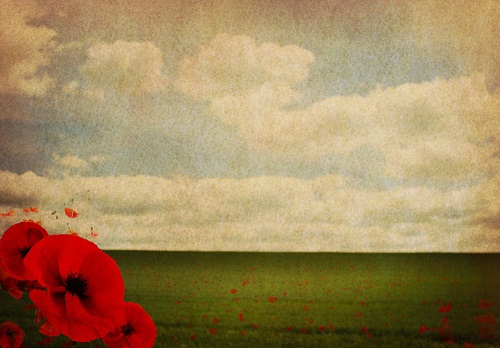Suitable for: Year 3 to Year 6
Learning Focus: To empathise with people’s feelings over the cause and effects of the Great War
To be able to compare and contrast source material to form a personal opinion
This year our TV screens, newspapers and more will be filled with stories and news about the Great War whilst events all around the country will mark the key aspects of the four year campaign.
In schools, pupils of all ages will be encouraged to learn at least something of one of the most talked about wars in history.
To help you introduce your class to the war, we’ve put together some activities.
One of the most important features of the Great War was the amount of heart-rending poetry written by soldiers at the front. Some had been poets before being drafted to the front, others had felt that poetry was the only way they could express their feelings over the horror and almost certain death in the trenches.
The poetry is popular today and is often cited at Remembrance Day church services but why has it lasted the test of time and why wasn’t it replaced by poetry from wars that succeeded it?
Part of the reason is that it is very powerful, written first hand and often at the moment of event that inspired it. It’s also quite accessible, often being written by those with only a basic education. Finally, it acts as source material for studies of the Great War.
Activity one – Comparison of War Poetry
This one is for older children and compares poems not only written in different wars but also a poem written by someone who wasn’t at the scene with one written by someone who was.
Give the pupils copies of Dulce Et Decorum Est by Wilfred Owen and The Charge Of The Light Brigade by Alfred Lord Tennyson. Give the pupils some background on the battles so they can put the poems in context but don’t tell them whether they were written at the scene or not.
Both tell of soldiers put in positions where it seems impossible to survive.
Use the question sheet that accompanies this activity to analyse the poems.
Activity Two – Propaganda Posters
The war effort was characterised by a series of posters issued by the British government, amongst others, trying to persuade young men to join up and fight the Germans. Other posters are called ‘propaganda’ and are designed to inform, or sometimes misinform. They often contain exaggeration and sometimes lies, simply to make people more positive, or sometimes negative about the war.
Take a look at the sheet of World War I posters. Decide which ones are recruitment posters and which are propaganda. How did you decide? What do you think the truth of the posters really is?
When the pupils have finished, ask them to design their own recruitment poster and their own propaganda poster.
Activity Three – What if there hadn’t been a war?
This activity will need a bit of information from the teacher as well as some research from the pupils.
The reasons for the start of the Great War are complex but give the pupils a little information and ask them to find out more about why it began. The catalyst was the assassination of Archduke Ferdinand in Sarajevo but there was a lot more to it than that.
Now imagine that the assassination had been unsuccessful and the war never was, how would Europe have looked five years after the period, ten years afterwards and do they think the Second World War would have happened?
You can do this as a debate with you posing questions, asking for answers then asking whether everyone agrees with the answer.
Activity Four – What Happened After the War?
We all know about the victory of the allies and the marking of victory with Remembrance Day but what was life like for those returning home?
Discuss the answers to these questions and then research them properly.
- Who do you think did the soldiers’ jobs whilst they were away and did they get their old jobs back?
- What was done for injured soldiers when they returned
- How was the damage in France repaired?
- What did the wives, girlfriends, mothers and daughters do during the war and did they stop doing it when the war ended?
A good way to do this is to write a newspaper report on the question. You can also suggest they do a piece of persuasive writing for the second question or can ‘hot seat’ the teacher as a soldier, a mother etc. and interview them.
Activity Five – Different Perspectives
We hear about the war from the British perspective but what did the Germans think about it? Ask the pupils to find accounts from the German perspective and present them to the class, comparing the views. What are the similarities and differences? The website www.firstworldwar.com has some great source material
Most of the accounts of war are from the lower ranks of soldiers who were on the front line but what did the generals think. There are many accounts of the attitudes of the higher ranking military. Ask the pupils to find some and compare them to the accounts given by the men in the trenches. Which do they sympathise most with? http://www.firstworldwar.com/diaries/index.htm gives lots of first-hand accounts.



